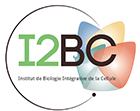The DSV's main public institution partners are the CNRS, Inserm, the Université d'Évry-Val-d'Essonne (UEVE), the Université Paris Sud (UPS), the Université Joseph Fourier (UJF) and hospital facilities, particularly those dependent on the Assistance Publique - Hôpitaux de Paris (AP-HP). Their scientific skills and respective scopes of activity benefit research conducted at the DSV in several fields, including bioenergy and development of energy-efficient processes, and emerging diseases and innovative therapies.
The CNRS, with its scientists from diverse
disciplines, is the natural and historical partner to support the DSV’s research
programs, which require grouping together the skills of physicists, chemists
and biologists.
Inserm is a strong partner in health research. The Inserm-CEA
framework agreement, renewed in 2014, facilitates collaborative actions: the creation
of joint research units; the mobility of researchers, engineers and technicians;
and shared access to specific platforms and installations as well as the Infrastructures
Nationales en Biologie et Santé.
Partnerships
with the AP-HP promote the DSV’s links to hospital research and its involvement
in medical research. These partnerships allow the transfer of innovations to
patients, and the development of translational research projects.
The UPS, UEVE and UJF universities are geographically close to CEA centers where the DSV is located. They are integrated in the site policy conducted by the DSV to promote the networking between territories (Saclay, Grenoble, etc.) regarding research and innovation.
The DSV also has strong links with other partners regarding
specific topics. This includes food allergies and plant physiology with INRA,
image analysis with INRIA, plant genetics and biophysics with the University of
Aix-Marseille, biomedical imaging with the Universities of Caen and Bordeaux, and
radio-toxicology with the University of Nice.
The DSV supports the creation of large joint research units (UMR) with its principal partners
The DSV and these privileged partners share the
administrative supervision of 22 joint research units, which are spread across
its eight institutes. As an example, more than 100 Inserm personnel and 200
CNRS researchers, engineers and technicians work in DSV research units.
Some UMR represent true national research centers in
the DSV’s focus areas:
In the south of Paris, the center for infectious diseases
research, ImVad, run by the DSV, Inserm and the UPS, bases its work on the
immunology of infectious diseases, autoimmune diseases, and inflammation. With
a double presence at the CEA’s Fontenay-aux-Roses center and the Bicêtre
Hospital, ImVad brings pre-clinical and clinical research teams from the
hospital and Inserm closer together, fostering the transfer of studies towards
patients.
The Institute for Integrative Biology of the Cell (I2BC),
a UMR which brings together 80 teams from the CEA’s DSV, the CNRS and UPS, was formed
around a unifying research project: to better understand cellular functioning
by integrating all of its levels of complexity. I2BC draws on its teams’ complementarity
of skills in molecular genetics, structural and cellular biology, microbiology
and virology.
The
DSV is involved in national infrastructures in biology and health
The DSV has been fully involved in the program “Infrastructures
nationales en biologie et santé”, which gathers the best teams in many
fields from the principal national institutes of higher education and research.
The DSV coordinates four of these infrastructures. It is also heavily involved
in four other infrastructures, where its teams work jointly with many partners
(mainly the CNRS, Inserm, UPS, UJF and INRA).